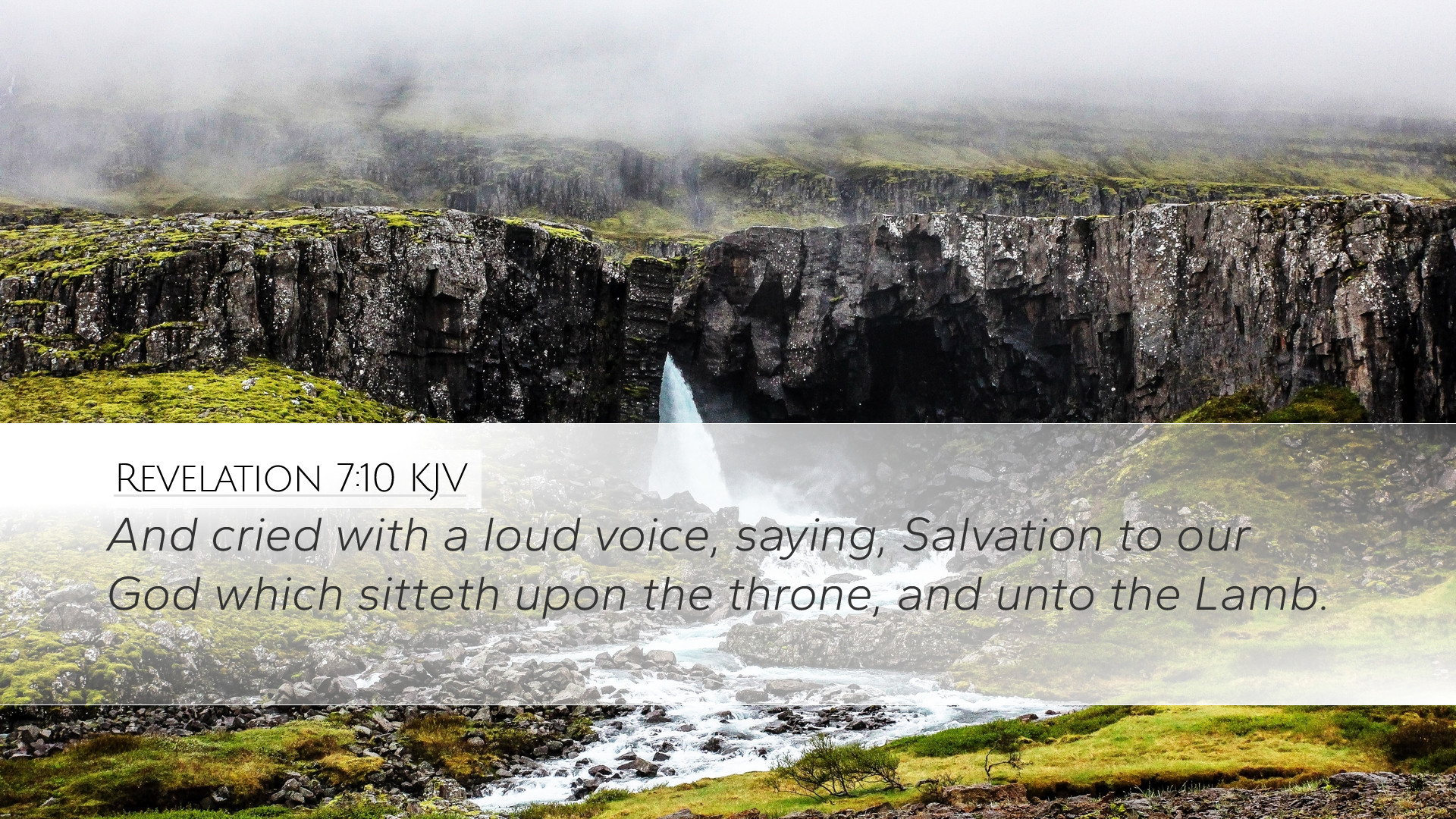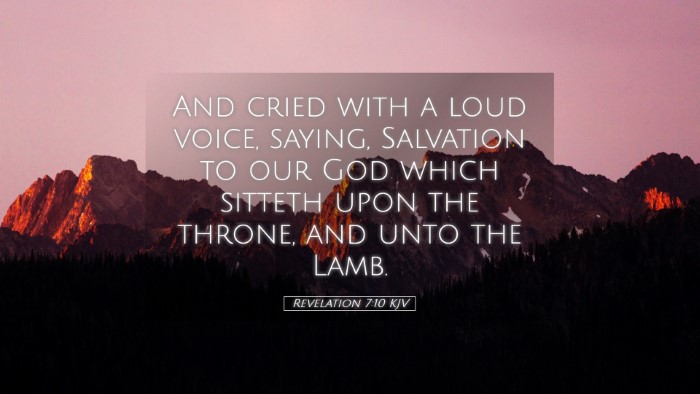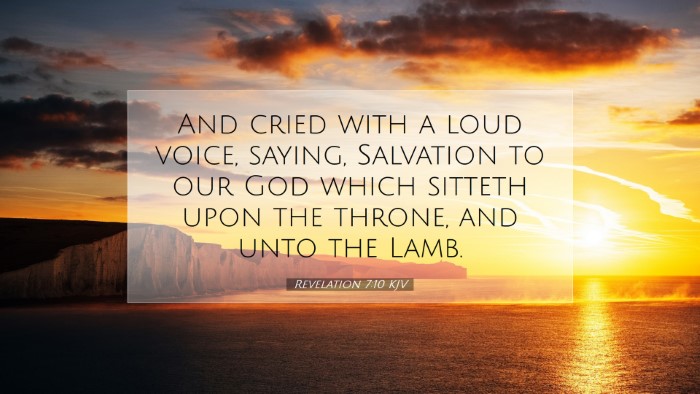Commentary on Revelation 7:10
Revelation 7:10: "And cried with a loud voice, saying, Salvation to our God which sitteth upon the throne, and unto the Lamb."
Introduction
This verse from Revelation 7:10 serves as a climactic expression of the worship given to God and the Lamb by the great multitude in heaven. In this commentary, we draw from the insights of prominent public domain theologians including Matthew Henry, Albert Barnes, and Adam Clarke to provide a rich examination of the implications and significance of this declaration of salvation.
Contextual Overview
The book of Revelation, primarily attributed to the Apostle John, shares profound eschatological visions that detail the end times and the ultimate triumph of God. Prior to this verse, the preceding passages detail the sealing of the 144,000 servants of God, and subsequently, the attention shifts to a vast multitude from every nation, tribe, people, and language that stands before the throne of God. This context is crucial, as it frames the significance of their loud proclamation of salvation.
Analysis of the Verse
Cries of the Multitude
This verse begins with a statement that indicates a loud proclamation. The emphasis on the loud voice signifies the unity and fervor of the multitude. Matthew Henry notes that such a loud cry symbolizes the joy and enthusiasm with which believers in heaven declare their eternal salvation. The intensity of their worship reflects the gratitude and appreciation for the grace they have received.
Salvation to Our God
The proclamation "Salvation to our God" indicates that salvation originates from God. Albert Barnes points out that this underscores the doctrine of divine grace—the acknowledging that it is by God's sovereign will and power that salvation is freely given. It highlights the theological position that human merit is absent in the act of salvation, thus reinforcing the monergistic nature of God's grace.
Which Sitteth Upon the Throne
The phrase "which sitteth upon the throne" addresses God's sovereignty and majesty. Adam Clarke elaborates that the throne represents God's supreme authority over all the universe. God's position as monarch not only signifies control but also indicates His role as the ultimate judge and sustainer of creation. This assurance is profound, particularly in the context of the persecutions experienced by early Christians.
And Unto the Lamb
Next, the declaration extends "and unto the Lamb," identifying Jesus Christ as central to the economy of salvation. The designation as "Lamb" evokes the sacrificial system of the Old Testament, where the lamb was a symbol of atonement. Matthew Henry emphasizes that it is through the Lamb—Jesus Christ—that believers receive their salvation, reflecting the completed work of redemption at the cross where Christ bore the sins of humanity.
Theological Implications
- Supremacy of God and Christ: This verse affirms the ultimate supremacy of God and Christ in the salvation of humanity. The joyful proclamation acknowledges the triune involvement in redemption.
- Universal Scope of Salvation: The multitude's diverse background signifies the universal nature of the Gospel, as everyone from varied nations, tribes, and tongues are invited into the fold of salvation.
- Corporate Worship: The verse illustrates a model of corporate worship, where believers join together to glorify God and express their gratitude, which serves as an encouragement for the church to gather in worship.
Practical Applications
For pastors and teachers, this verse provides a powerful foundation for preaching the Gospel message of salvation. It encourages believers to recognize their status as recipients of grace and to express their faith in communal worship. The call to acknowledge both God and the Lamb underscores the importance of Christ-centric preaching.
Students of theology can delve into discussions surrounding the implications of God’s sovereignty in salvation while considering historical interpretations of salvation throughout church history. This text serves as an impetus for deeper exploration into the attributes of God and the understanding of Christ’s redemptive work.
Conclusion
Revelation 7:10 encapsulates the essence of Christian hope and worship. It reminds believers of the source of their salvation and the necessity of acknowledging God’s supreme authority. As we meditate on this passage, let our hearts resonate with the loud voices of the multitude, ever proclaiming his grace, mercy, and our salvation through the Lamb.


